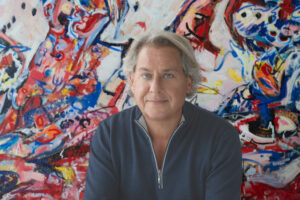 On Consolation, his most recent album of original compositions, pianist Alain Lefèvre lets his fingers do the talking, while his heart harbours only one hope: that his music will bring a bit of light to our increasingly dark world.
On Consolation, his most recent album of original compositions, pianist Alain Lefèvre lets his fingers do the talking, while his heart harbours only one hope: that his music will bring a bit of light to our increasingly dark world.
Despite his beginnings as a child prodigy, his impressive international career as a concert pianist and his unwavering commitment to bring forward the work of some of Québec’s composers – starting with André Mathieu – Lefèvre is a man filled with doubt. He’s undeniably one of Canada’s most acclaimed musicians, and a tireless champion of great music, both classical and contemporary. There is, however, one title he’s still hesitant to claim fully: that of composer.
“It’s not false humility,” he says. “I’m 63 now and I’ve been playing since I was five. For the longest time, I was ashamed to even think of myself as a composer. I mean, when you spend your whole life immersed in the repertoire of Chopin, Brahms, and Beethoven, and you start composing, you can’t help but think, ‘My God, what I’m doing is ridiculous!’ I think I’ve been brainwashed a little by the Great Masters.”
Be that as it may, Lefèvre has been offering his original compositions since the turn of the millennium, starting with his album Lylatov, which he created as a response to the enthusiastic encouragement of his entourage. “I still felt a bit self-conscious – which is why I added some Satie, and other pieces, so it wouldn’t be a Lefèvre-only affair,” the pianist recalls. “Composing entered my life as a kind of exorcism for my anxiety. I had a difficult childhood, that made me an insomniac and hypersensitive adult, so for me, composing is above all a way of facing my demons at the piano. My writing is simple; it’s my heart speaking through my fingers.”
This quest for transcendence and desire to soothe wounds – his own as well as ours – permeates every one of the pieces on Consolation, his latest album, released worldwide on Warner Classics. Inspired by the global anxiety provoked by the pandemic, Lefèvre’s compositions aim to brighten the prevailing gloom with delicate and comforting melodies, although a certain sadness in the face of the world’s madness can be felt, particularly on “Fatalité.”
“It’s unlike anything else I’ve composed,” says Lefèvre. “It came to me one morning after I took a moment to realize how many wars were happening at once, the rise of populism, and the unravelling of our social fabric. What I felt wasn’t anger, but a kind of despondency, but I still believe, humbly, that music can be a great consolation, that re-connects us to our humanity.”
Lefèvre knows he’s among the lucky ones whose audience is always there when they return with a new album, or concert. He is, however, saddened by the lack of space given to music in the media and in schools, and that’s why he waves a red flag every chance he gets. “Unfortunately, in the name of so-called democratizing classical music, we often end up doing just about anything,” he says. “When a symphony orchestra – and I’m not singling anyone out – promotes its season by saying, ‘Hey, we’re doing three rock concerts this year,’ it drives me insane. I’d really like to know if rock bands are ever going to promote classical music in return. Can you imagine U2, in the middle of a show, announcing, ‘Okay, now we’re going to play 25 minutes of Johann Sebastian Bach’?”
But despite these concerns, Lefèvre remains convinced that the key to nurturing new generations capable of appreciating the repertoire – whether classical or modern – is to expose kids to music in its purest form. “What I saw in Korea was stunning,” he says. “Concert halls were filled with audiences where nearly half of the people were under the age of 15. But that’s the only place in the world where I’ve seen that. In comparison, our audiences for classical music are aging.”
But it doesn’t have to be that way, he adds: “For 35 years, I’ve visited schools all over the world. I’ve probably played for millions of children – in Guatemala, Nicaragua, El Salvador, Russia, China, Japan, and Taiwan, and I can guarantee you not a single one of them was indifferent to classical music. What really matters is giving younger generations a foundation that will help them become music lovers, just as we must educate them about the world, so they can become informed voters.”
